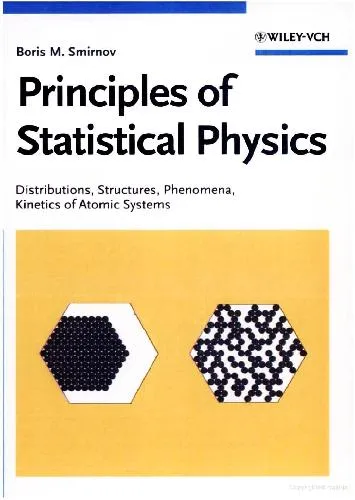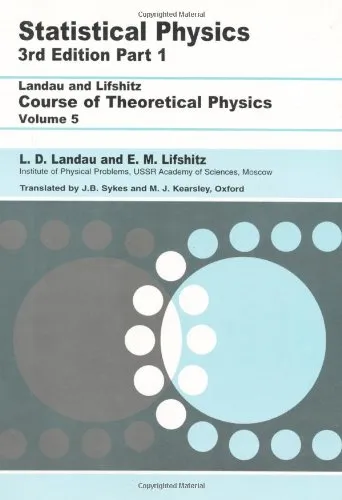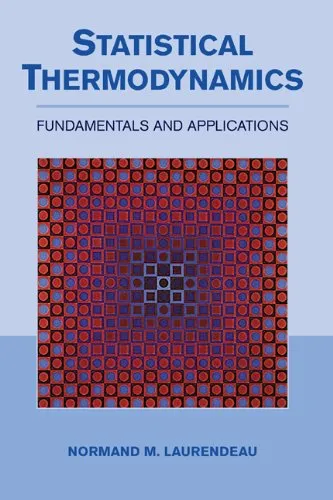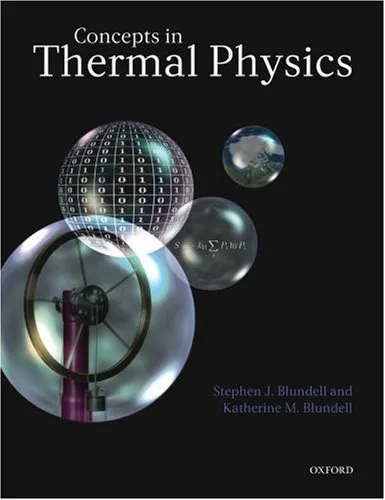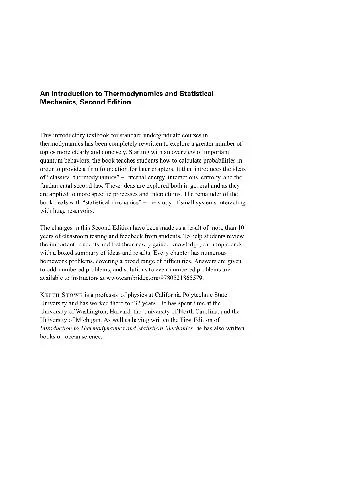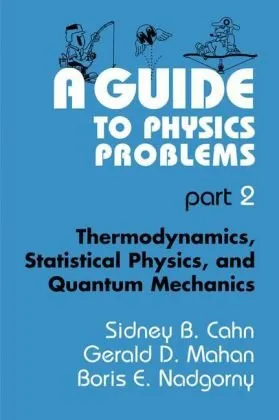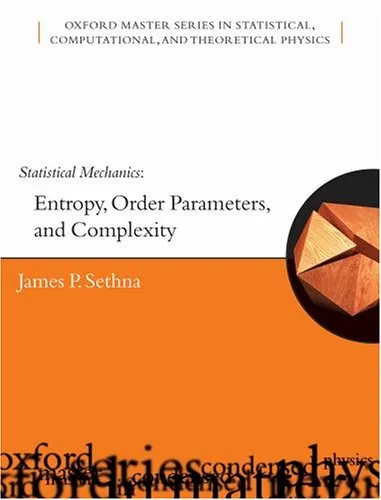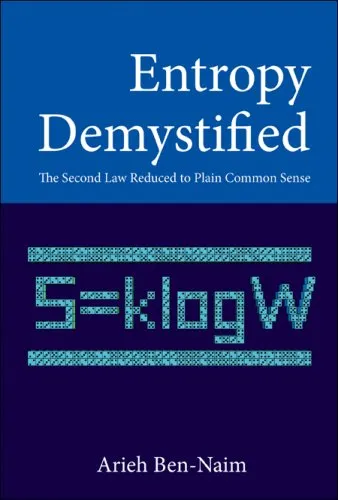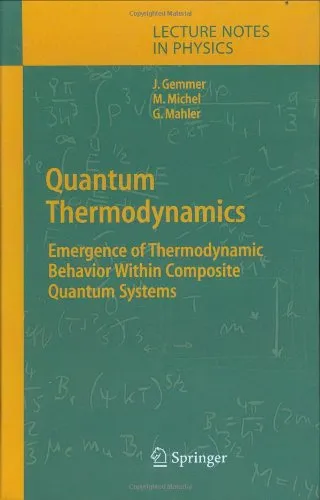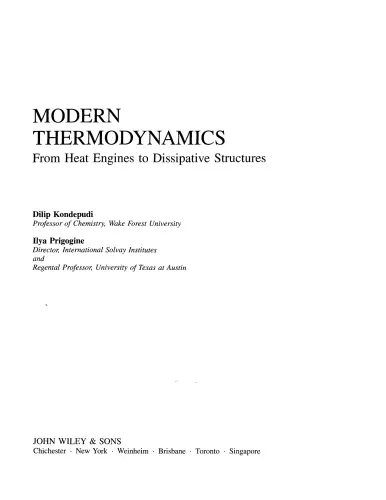Principles of Statistical Physics
4.7
Reviews from our users

You Can Ask your questions from this book's AI after Login
Each download or ask from book AI costs 2 points. To earn more free points, please visit the Points Guide Page and complete some valuable actions.Related Refrences:
Introduction to "Principles of Statistical Physics"
"Principles of Statistical Physics" is an insightful treatise that delves into the core principles governing the behavior of macroscopic systems composed of a large number of microscopic constituents. This book seamlessly bridges the gap between theoretical foundations and practical applications, giving readers a comprehensive understanding of both classical and quantum statistical mechanics. Authored by B. M. Smirnov, the work stands as a cornerstone in modern interpretations of statistical physics, offering clarity and depth to students, scientists, and enthusiasts alike.
Summary of the Book
In "Principles of Statistical Physics," B. M. Smirnov explores the fundamental mechanisms that dictate the behaviors of large systems at equilibrium and non-equilibrium states. Divided into logically structured chapters, the book covers topics ranging from the principles of probability theory and ensemble representations to thermodynamic potentials and the quantum realm of particles. Smirnov emphasizes the critical role that statistical methods play in predicting physical phenomena, making connections to real-world applications such as phase transitions, critical phenomena, and thermodynamic feedback mechanisms.
The book starts with an introduction to probability theory and its essential role in statistical physics. This is followed by an exploration of classical systems and ensembles, such as microcanonical, canonical, and grand canonical ensembles. It then transitions into quantum principles, analyzing the statistical behaviors of Bose-Einstein condensates, Fermi-Dirac distributions, and blackbody radiation. The latter chapters delve into advanced topics like non-equilibrium statistical mechanics and the associated transport phenomena, painting a complete picture of how systems evolve over time when deviating from equilibrium.
What sets this work apart is its rigorous treatment of the subject matter while remaining accessible. Smirnov combines mathematical rigor with physical intuition, ensuring readers gain a twofold appreciation of the theoretical frameworks and their relevance to observational physics.
Key Takeaways
- A comprehensive introduction to classical and quantum statistical mechanics.
- Deep insight into the behavior of macroscopic systems at equilibrium and non-equilibrium states.
- An in-depth understanding of ensemble theory and its applications to real-world problems.
- Clear explanation of quantum statistical distributions, such as Bose-Einstein and Fermi-Dirac statistics.
- Advanced coverage of transport phenomena and non-equilibrium systems.
Famous Quotes from the Book
"Statistical physics allows us to discern the collective behavior of millions of microscopic particles, unveiling the laws that govern the macroscopic universe."
"At its core, statistical physics is not just about numbers; it is a profound exploration of patterns that emerge at every scale of nature."
Why This Book Matters
Science owes much of its progress to the capacity to understand complex systems, and "Principles of Statistical Physics" provides the essential tools for such an undertaking. This book is pivotal for those who wish to comprehend not only the basics of statistical physics but also its wide-ranging implications across disciplines like chemistry, biology, and engineering. From designing better materials to understanding the thermodynamic properties of stars, this book equips readers with a robust framework for approaching a diverse array of scientific problems.
B. M. Smirnov’s balanced approach of theoretical rigor and practical examples ensures that the text resonates deeply with both seasoned researchers and novices. It empowers readers to transition seamlessly from the foundational principles of equilibrium thermodynamics to the dynamic nature of non-equilibrium processes, a critical skill in many scientific careers. Whether used as a textbook or a reference guide, "Principles of Statistical Physics" delivers timeless insights into the universal law of averages that governs our reality.
Free Direct Download
You Can Download this book after Login
Accessing books through legal platforms and public libraries not only supports the rights of authors and publishers but also contributes to the sustainability of reading culture. Before downloading, please take a moment to consider these options.
Find this book on other platforms:
WorldCat helps you find books in libraries worldwide.
See ratings, reviews, and discussions on Goodreads.
Find and buy rare or used books on AbeBooks.
